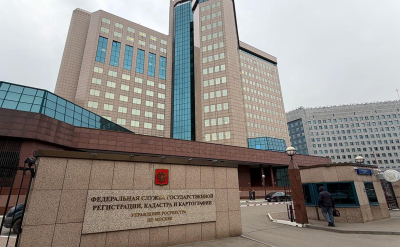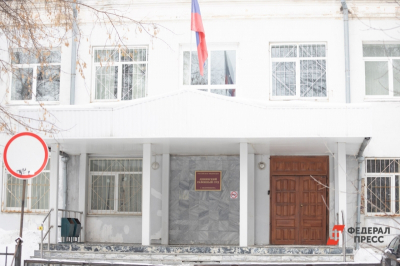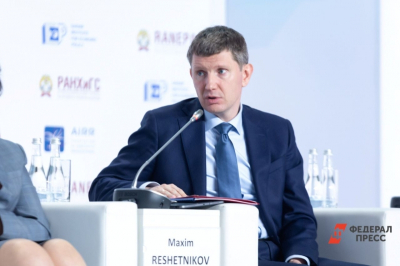The fines Kazakhstan imposes on mass polluters in the oil and gas sector are, in fact, political and economic tools
Kazakhstan’s government set out to punish harshly environmental violations in the oil and gas sector in the past few years. While the government has a history of trying to extract concessions from oil companies through environmental fines, experts note that the recent $4.4 billion fine against the Kashagan operators and the multimillion dollar fines the government has imposed recently could represent an attempt to beef up the budget and the National Fund.
Осы мақаланың қазақша нұсқасын оқыңыз.
Читайте этот материал на русском.
In 2023, issues over sulfur storage prompted Kazakhstan’s government to seek compensation through court claims against major global oil companies. Official sources say that the claim totals 2.3 trillion tenge ($4.4 billion at the time of writing), a record amount in Kazakhstan.
Though massive, the fine is part of a wave of environmental violations that Kazakhstan’s authorities discovered at the Kashagan field, operated by the North Caspian Operating Consortium (NCOC), including Shell, Eni, ExxonMobil, TotalEnergies, CNPC, and Inpex, as well as state-owned Kazmunaigas.
Environmental Damage
Kazakhstan’s local courts had filed the $4.4 billion claim after a 2022 inspection found several violations, including excessive storage limits of sulfur. The high concentration of hydrogen sulfide (H2S) is one of the main technical hurdles at the Kashagan field. Both because it is highly toxic and because it can be used, among others, in the manufacture of dyes, pesticides, polymers, and pharmaceuticals, H2S must be securely stored once it gets separated from the crude oil. Failure to properly handle H2S could result in both human and environmental hazard.
After the initial accusations, NCOC denied any wrongdoing. In March 2023, the ministry of ecology confirmed it had fined NCOC for allegedly improperly stocking H2S. The $4.4 billion fine was contested by the consortium and dismissed by a local court.
“From the perspective of NCOC, a fine of this size is absurd. More than an actual violation that would cause damage of this size, this looks like a hook to get some compensation. But obviously a figure of $5 billion is quite dramatic,” a London-based political consultant told Vlast on condition of anonymity.
In November 2023, however, the main partners in the consortium allegedly proposed a cash settlement of about $200 million. According to Bloomberg sources, the payment would be earmarked for social projects.
When it looked that the fine could be finally withdrawn in October 2024, the consortium allegedly proposed to settle with a $110 million payment over two years. Weeks later, a special appeals court reinstated the fine.
At a briefing on December 17, Nurlan Baibazarov, the minister of economy, said the government did not receive any official proposal to settle the fine with a cash injection into social projects, but left the door open for future negotiations.
“Perhaps at some point we can go down the path of mediation. That is, we could conclude a peaceful agreement to regulate this issue,” Baibazarov said.
Nurlan Zhumagulov, a veteran of the oil industry and the author of the Energy Monitor Telegram channel, told Vlast this is not the first time that international consortia try to settle their disputes out of court.
“The NCOC consortium already successfully managed to soften an environmental fine by directing funding to the development of EXPO-2017 [in Astana]. It’s possible that they are trying to go on the same path now,” Zhumagulov said.
The NCOC consortium and its members did not respond to Vlast’s requests for comments.
Using Kashagan Money in Astana
In his campaign program ahead of the 2022 presidential elections, President Kassym-Jomart Tokayev ordered the government to take measures so as to increase the assets owned by the country’s National Fund to $100 billion. At the time, the National Fund held about $55 billion, which it mostly gathered through contributions from companies operating in the oil sector. Instead of rushing towards the $100 billion goal, in the past two years the National Fund has only climbed up to just under 31 trillion tenge (equivalent to $60 billion, a 12% increase). This is because the government has withdrawn increasingly more cash from the Fund in an effort to plug a gaping budget hole.
Besides extra profits, the National Fund also collects fines, including environmental ones, incurred by companies in the oil sector. So, rather than being directly used to remedy environmental damage or to improve life in the affected area, the cash from environmental fines first travels into the hands of the Central Bank – which manages the National Fund – and can then be funneled into the government budget via “targeted” or “guaranteed” transfers, or – as shown in detail here – through the purchase of state-owned assets.
Zhumagulov said that sending the proceeds from a fine for an environmental violation in Atyrau to Astana makes little sense.
“Logically, the fines should go in support of the places where the environment was damaged. Now, Atyrau activists are calling for environmental fines to go to the local budget, not to the National Fund,” Zhumagulov told Vlast.
"Logically, the fines should go in support of the places where the environment was damaged."
Yet, indirectly financing the national budget through an environmental fine would also be timely.
“Given the budget deficit, it’s difficult to foresee a change in the law on the National Fund,” Zhumagulov concluded.
Not Just Big Fines
While the $4.4 billion fine for NCOC is surprising, this is not the first time that the Kashagan project has come under the spotlight of the prosecutors.
It was H2S that in 2013 – just weeks after production first started – corroded a pipeline connecting the offshore field to the mainland, causing a large spill, massive cost overruns, and a three-year delay in the resumption of the project.
In the early stages of the project, environmental advocates claimed wrongdoing and negligence in the disposal of highly-toxic materials onshore and offshore.
In 2014, a massive $737 million environmental fine for the damages that the toxic gas had created to the pipes pumping the oil onshore was eventually reduced when ENI promised to stay on track for resuming production.
In a recent academic article, Julia Schwab, who teaches at the University of Glasgow, where she researched resource nationalism in Kazakhstan and Russia, wrote that Kazakhstan’s government also used the fine to paint itself as a champion for the environment.
“The Kazakhstani government was framed as one of the heroes of the story of the pipeline leak at Kashagan.”
When it was imposed, observers said the tactic looked similar to what the Russian government did to another energy project in its Far-Eastern regions.
“The authorities seemed to have decided to go for the ‘Sakhalin method’, which entails imposing a gigantic fine to force the company to give up its license for the field and ultimately get rid of the consortium,” a newspaper article read at the time.
In 2006, a long-running dispute between the Russian government and Western companies, which culminated in the threat of a $30 billion fine, was resolved when Gazprom gained control of a 50% stake in the project.
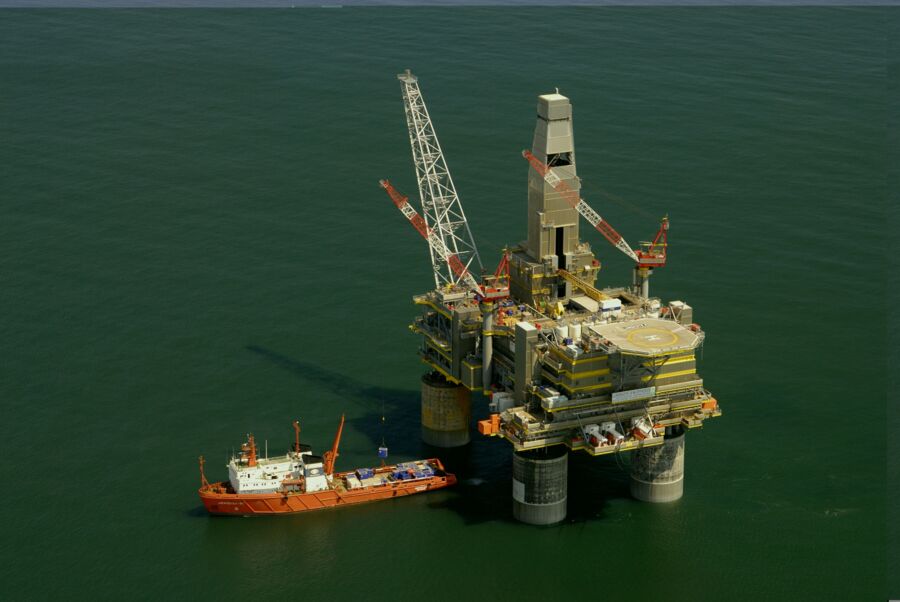
In an interview with Vlast, Schwab pointed out that the latest environmental dispute at Kashagan looks different.
“There is no doubt that Kazakhstan learned a lot from the Sakhalin dispute, but these are markedly different cases,” Schwab explained.
Small vs Big
Just this year, the three largest oil ventures in Kazakhstan were fined dozens of millions of dollars for environmental violations.
In January, the ministry of ecology said that Karabatan Utility Solutions (which works with NCOC) was fined 7.2 billion tenge ($14.5 million), Tengizchevroil (which operates the country’s largest field) was fined for 2.8 billion tenge ($5.6 million), and Karachaganak Petroleum Operating (the company operating the Karachaganak field, regulated via a PSA) was fined 50 million tenge ($100,000), for emissions above the limit and dumping of pollutants.
In April, NCOC paid a fine of around $27.7 million for gas flaring and dumping untreated waters into the Caspian Sea.
In July, Caspi Neft, a company owned by Timur Kulibayev, the son-in-law of former President Nursultan Nazarbayev, was fined for improperly storing hazardous waste between 2021-2022. The Atyrau court ordered Caspi Neft to pay 13.3 billion tenge ($26.6 million), but the company wants to now fight the accusation at the Supreme Court level.
In a written response to Vlast in November, Mansur Oshurbayev, the vice-minister of ecology, said that Karabatan Solutions, Tengizchevroil, Caspi Neft, and NCOC already paid their fines. Karachaganak Petroleum Operating is disputing the inspection that led to their fine at the Supreme Court.
But how does the $4.4 billion fine compare to these smaller, more concrete sanctions? Experts say these are two tactics serving the same purpose: Using the environmental pretext to put pressure on the companies.
“In the case of Kashagan, the government seems interested in coming out ahead in the relationship with the consortium, presenting itself as the boss,” Schwab said.
“Also, such a large fine could be a good revenue stream for the government,” Schwab argued.
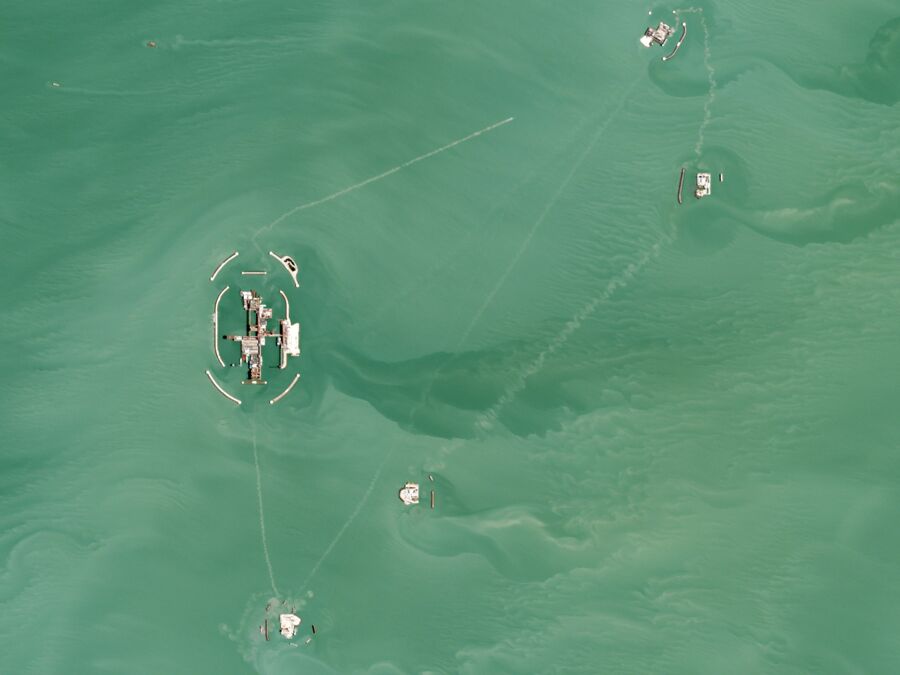
Beyond a pure cash injection into public funds, in fact, environmental fines have also been used in the past as a way to push uncomfortable corporate changes in some of the most important oil and gas projects in the country.
In 2011, following threats of environmental fines, Kazmunaigas and KPO (the consortium of companies including Shell, Eni, Chevron, and Lukoil involved in Karachaganak, in West Kazakhstan) concluded a three-year legal and fiscal spat by allowing Kazmunaigas to buy a 10% stake for $1 billion.
The “voluntary donations” such as the one that NCOC allegedly proposed to settle the latest environmental fine or the corporate restructuring in the case of Karachaganak have not pushed international oil companies away.
Invisible Pollution
Given the extensive evidence from court filings, experts believe that environmental violations are common in oil and gas projects. What is peculiar, however, is that some are punished more than others.
In 2023, an accident at the Karaturun gas field in Mangistau led to the largest methane leak caused by an infrastructure accident that was ever documented. For 205 days, the polluting gas leaked from the drilling site into the atmosphere.
"The magnitude and the duration of the leak is frankly unusual," Manfredi Caltagirone, head of the UN’s International Methane Emissions Observatory, told the BBC. "It is extremely big."
According to the research published at the Environmental Science and Technology journal, “Only the sabotage of the Nord Stream 1 and 2 subsea twin pipelines in the BalticSea on September 26, 2022, for which a total of 420−490 kt (95% confidence interval) has been estimated, may have led to greater emissions than the Karaturun 2023 blowout event.”
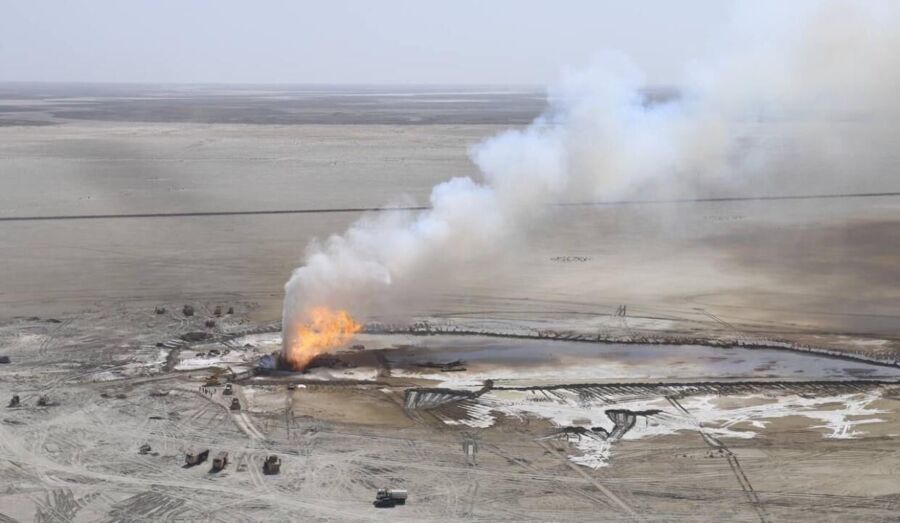
Simon Pirani, honorary professor at the University of Durham, told Vlast in an interview that it is now easier to detect from space what has been a long-standing problem in oil and gas extraction in the Eurasian region.
“The high level of methane leaks from aging pipelines and hydrocarbon fields in Russia and Central Asia was a serious contributor to the greenhouse gas problem for many, many years,” Pirani said.
Meanwhile the ministry of ecology denied the leak caused "pure methane” emissions, saying that burning gas caused emissions of other pollutants. In March, the operator of the field, Buzachi Neft company, owned by businessman Murat Safin, who once figured among Forbes’ list of Kazakhstan’s richest, was fined 500 million tenge ($1.1 million).
Six months later, a court in Almaty imposed an additional fine of 2.2 billion tenge ($4.5 million) for having flared gas during the leak.
Should the court process end here, the single biggest case of environmental pollution in the country will only be fined around $5.6 million, a tiny fraction of what the government is seeking from the Kashagan consortium.
Here to Stay
In October 2024 NCOC asked the Supreme court of Kazakhstan to pause the domestic proceedings regarding the $4.4 billion fine due to ongoing international arbitration. The company argued that the subject of the hearings is also being examined by the arbitration court, which has “exclusive competence to resolve the contractual aspects of the dispute”. The Supreme Court of Kazakhstan is currently considering NCOC’s request.
While the legal tug-of-war continues over the environmental fine, in fact, the government of Kazakhstan filed another claim, this time at an arbitration court, worth as much as $160 billion, against the same oil companies. In this case, the government is seeking to prove that it was unfairly compensated through the Production Sharing Agreement (PSA) contract with the other NCOC shareholders.
Beket Izbastin, the head of the PSA Agency, a government body in charge of state-business relations for a number of PSA-based projects, said that Kazakhstan’s claims in the arbitration are historical.
“The claims concern issues that were not resolved in the past. Therefore, invoking our PSA rights, we were forced to submit the claims for arbitration,” Izbastin said in September.
"They are already there and they won’t go away."
This tactic, however, could impact Kazakhstan’s overall investment climate, given that the PSA Authority essentially routinely tries to force its hand to push international partners to give concessions.
Izbastin disagrees.
“The international arbitration claims are not related to [the investment climate], this only demonstrates the government’s commitment to complying with the mechanisms for resolving disputes generally accepted in the global business community,” Izbastin said.
Schwab said the history of government-company disputes shows that the oil industry is profitable enough to justify the companies’ “extra costs.”
“They are already there and they won’t go away. As long as the oil sector is profitable, [foreign] companies will continue to come to Kazakhstan,” Schwab said.
The more unclear the rules of the game are, however, the more these companies feel their patience is being tested.
Власть — это независимое медиа в Казахстане.
Поддержите журналистику, которой доверяют.
Мы верим, что справедливое общество невозможно построить без независимой журналистики и достоверной информации. Наша редакция работает над тем чтобы правда была доступна для наших читателей на фоне большой волны фейков, манипуляций и пропаганды. Поддержите Власть.
Поддержать Власть






